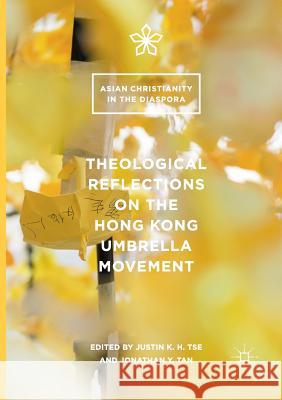Theological Reflections on the Hong Kong Umbrella Movement » książka
topmenu
Theological Reflections on the Hong Kong Umbrella Movement
ISBN-13: 9781349956548 / Angielski / Miękka / 2018 / 184 str.
Kategorie:
Kategorie BISAC:
Wydawca:
Palgrave MacMillan
Seria wydawnicza:
Język:
Angielski
ISBN-13:
9781349956548
Rok wydania:
2018
Wydanie:
Softcover Repri
Ilość stron:
184
Waga:
0.24 kg
Wymiary:
21.01 x 14.81 x 1.07
Oprawa:
Miękka
Wolumenów:
01
Dodatkowe informacje:
Wydanie ilustrowane











